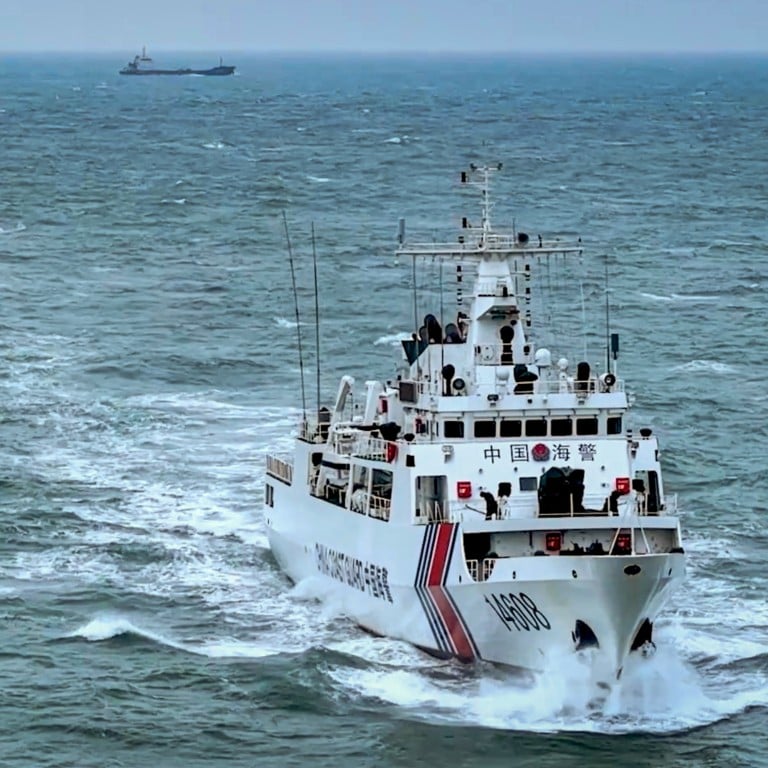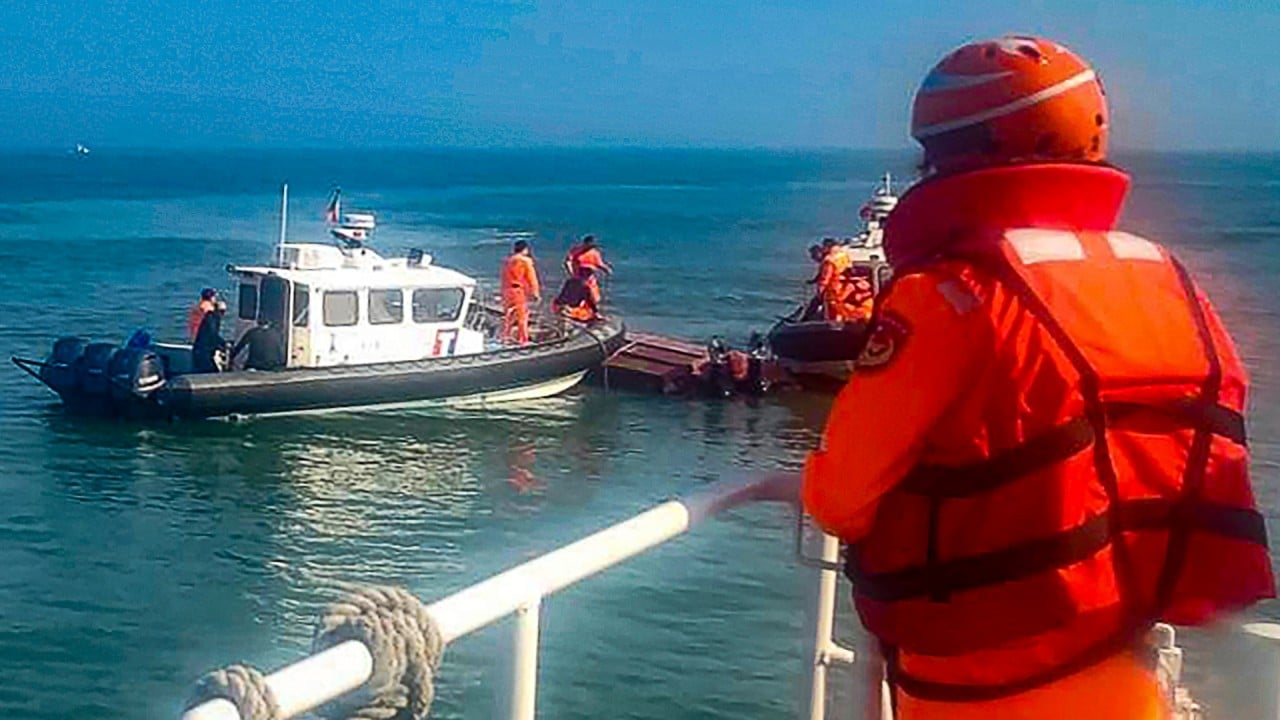
Fatal coastguard chase: Taiwan blames Beijing’s lack of enforcement on illegal fishing boats
- During meeting with lawmakers, island authorities defend coastguard actions in incident that led to the deaths of two mainland fishermen last month
- Beijing must step up controls to avoid repeat of confrontation near Quemoy, coastguard authority says
All four men fell overboard and two of them survived, with the mainland and the island blaming each other for the fatalities.
In a legislative meeting in Taipei on Monday, lawmakers keen to resolve the dispute demanded explanations about whether the island’s coastguard vessel hit the fishing boat and caused it to capsize.
Delivering a report to the legislature, the island’s Coast Guard Administration said the crew of the patrol vessel were carrying out their duties when they ordered the “three-no” – unnamed, uncertified and unregistered – vessel to stop for inspection.
Administration director general Chou Mei-wu told the lawmakers that inspections or ejections of unlicensed vessels operating in Taiwanese waters were part of the coastguard’s duties, which were included in a maritime cooperation programme between the two sides.
The incident should not be viewed as an unreasonable action by the Taiwanese coastguard to deliberately hit the speedboat, Chou said, as “impact would be inevitable” if a boat refused to stop for inspection and sped away during the pursuit.
Aside from some damage on the port side of the speedboat, not even a dent was found anywhere else on the vessel, Chou said.
Beijing condemns Taiwan over sea chase that killed 2 mainland Chinese fishermen
In a separate report to the legislature, the Mainland Affairs Council said the mainland side was to blame for not enforcing its bans of such boats.
“The refusal to stop for inspection by the mainland ‘three-no’ boat and the crew’s risky attempt to evade the check was the immediate cause of the mishap,” the council, which charts cross-strait policy, said.
“The mainland side’s lengthy inaction to ban a large number of ‘three-no’ vessels – which has resulted in their random disturbances of our prohibited and restricted waters – was the root cause of the incident.”
Council chairman Chiu Tai-san told the meeting that the “mainland side should step up controls of ‘three-no’ vessels to avoid a repeat of regrettable cases like this”.
2 mainland Chinese fishermen return home after fatal Taiwanese coastguard chase
Beijing has accused the island of using “violent and dangerous methods” during the incident and boosted the number of patrols in waters around Quemoy and Matsu – another Taiwanese defence outpost near the mainland – to enforce laws and protect its fishermen.
Beijing – which views Taiwan as part of its territory, to be reunited by force if necessary – suspended official exchanges with the island in 2016 when Tsai Ing-wen, of the independence-leaning Democratic Progressive Party, was elected president and refused to accept the one-China principle.
Like most countries, the United States – Taiwan’s informal ally and largest arms supplier – does not recognise the island as an independent state but is opposed to any unilateral change of the status quo by force.


